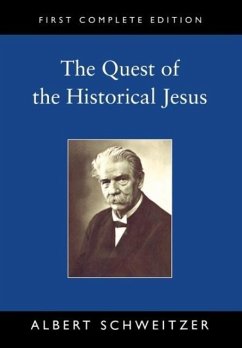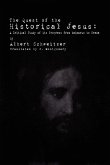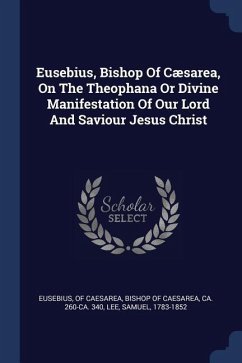Albert Schweitzer's THe Quest of the Historical Jesus will always be the most important book about the study of Jesus written in modern times. Remarkable enough, however, the full text has never been available in English. A second German edition came out in 1913 with such extensive modifications and additions as to make it a new book, but it was never translated. Now, at last, after the overcoming of many difficulties, the first complete text is available in English. The book is around 300 pages longer than the earlier one. It contains three additional chapters, those on comparative studies of Jesus and on the situation at the end of the nineteenth century, have been substantially enlarged and revised. Schweitzer also made many changes elsewhere, and cut out a number of passages. On close inspection the original translation has proved quite unsatisfactory, and this has been revised throughout and the text has, of course, been reset. Instead of reading and looking like a museum piece, Schweitzer;s classic comes up as fresh as it had been written yesterday.








